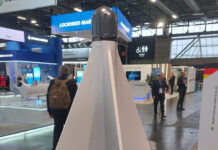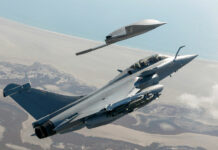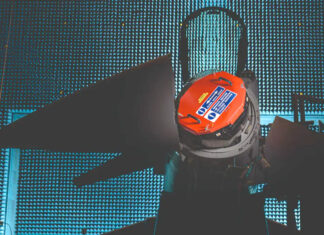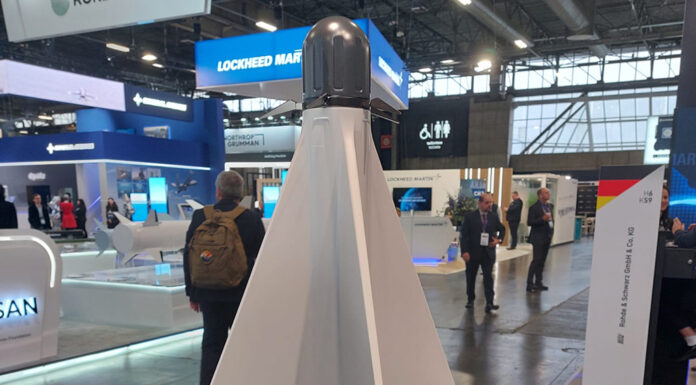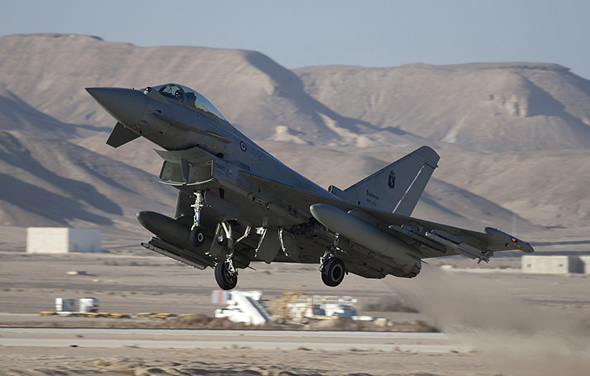
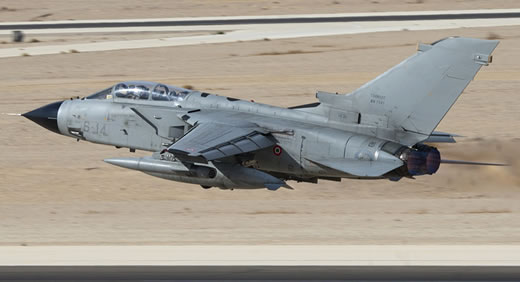
Panavia, the European consortium responsible for the multinational Tornado program has been awarded an upgrading contract under the long-term support and capability upgrades of the Tornado Strike Fighter platform. The objective of current contract is the integration of the two new Weapons – the Advanced – Anti Radiation-Guided- Missile (AARGM) and the Small-Diameter-Bombs (SDBs). AARGM, also designated AGM-88E is an enhancement of the current High Speed Anti-Radiation Missile (HARM).
new missile has new RF seekers that can ‘memorize’ a target signature and location, therefore pursuing attacks even when the target ceases to emit (switched off). It also has the ability to employ a selective aimpoint, by attacking the target’s most vulnerable parts (i.e. the processor rather than the emitting elements – such as radar antennae). The weapon’s geolocation capability enables the AARGM to memorize Impact Avoidance Zones (IAZ), eliminating much of the risks of fratricides and collateral damage typically restricting the use of standoff weapons in close proximity to friendly forces or in situations where the risk of collateral damage is too high for the standard AGM-88. Such weapons would be employed with the ECR’s Suppression of Enemy Air Defense (SEAD) mission.
The Small Diameter Bomb has been in service with the US Air Force and Navy since 2006. The weapon packs a guidance kit and a wing set enabling the bomb to glide over significant distances (60 miles), and penetrate hard targets, thus providing strike aircraft essential standoff attack capability while maintaining high precision and low collateral damage. SDB is currently offered with basic GPS/INS (GBU-39) or with Laser/GPS/INS (GBU-54) for enhanced precision and the capability to engage mobile targets.
The Italian Air Force currently operates 62 Tornado Strike Fighters (IDS) and 16 Electronic Combat & Reconnaissance variants (ECR). The two weapons will be integrated on aircraft of two latest variants: Tornado RET 7 and RET 8 Mid-Life Upgrade (MLU) configurations. Italy expects to have 58 aircraft upgraded to the MLU RET8 standard by 2015, with the delivery of the last 25 aircraft currently undergoing modernization. These aircraft are designed to remain in service beyond 2025. According to Panavia, RET 8 configuration added improved display systems, digital video and data recording, multi-mode receiver, digital maps, MIDS (Link 16) inserts, and support for RAFAEL’s RecceLite reconnaissance pods. The implementation of the current weapons upgrade will include integration and flight test activity; the integration of both Weapons in a common Software load will be included with one unique Panavia Service Release Recommendation (PSRR) to be issued by December 2015.
While the upgrade is focused on the Italian Air Force Tornado fleet, all the Panavia Partner Companies will be involved, mainly Alenia Aermacchi and CASSIDIAN as well as the weapons suppliers Boeing (SDB) and ATK (AARGM).

